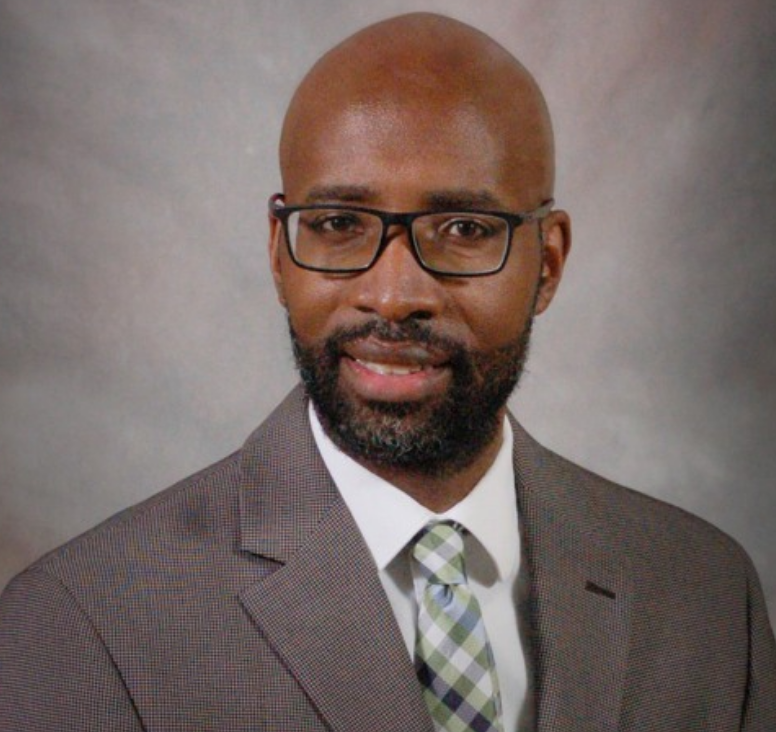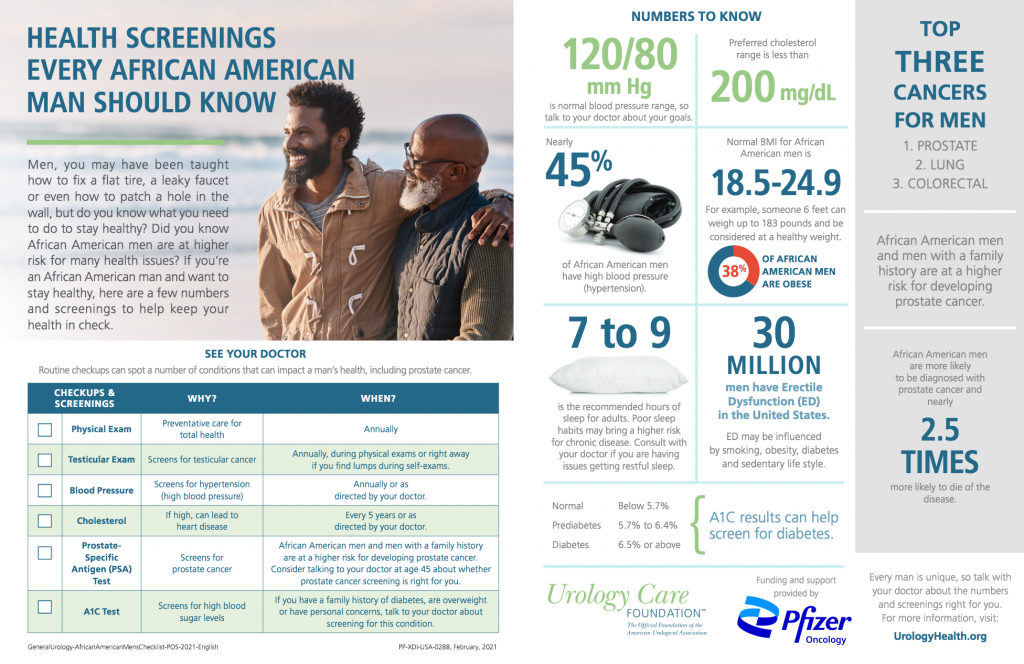The Urology Care Foundation recently interviewed my friend and colleague, Dr. Byron Varnado, for a podcast concerning African-American men’s health. Dr. Varnado is a family physician in Muskegon, Michigan, where he has been practicing for 22 years. We are lucky to have a physician in our community that chose to practice in the community where he was also born and raised. Dr. Varnado currently provides medical care through the Hackley Community Care Center.
Disproportionate health risks for African-American men
While COVID-19 shed light on the importance of maintaining our health, it also surfaced the many health disparities that exist in our community and across our country. People of color in the US have been disproportionately dying from COVID-19. In particular, the disparity has been the greatest for young Black men. They face advanced risks due to more chronic health conditions and inconsistent access to health care, among other factors.

Many African-American men do not address health care needs beyond episodic care. In this UCF podcast for Men’s Health Month, Dr. Varnado explains that men don’t tend to visit the doctor unless they are in dire consequences or something has really gone awry. Having a relationship with a doctor that makes a man feel comfortable is key to healthy outcomes. However, that relationship has to be built over time and requires trust.
Trust is really important to everyone, but especially to African-American men—as trust has been an issue or barrier in the past and still is currently.
—Dr. Byron Varnado
Screenings and preventative health care
While a trusted physician relationship can help patients to more easily address acute needs, this relationship can be a critical resource for preventative care and screening tests. For example, African-American men are at especially high risk for prostate cancer.
One in six Black males will be diagnosed with prostate cancer—almost double the rate of White males. Annually, more than 30,000 men die from prostate cancer. Screenings, like PSA measures, may provide timely early-stage information, while delaying care can be detrimental to outcomes. Screenings should also start at younger ages.
Dr. Varnado stresses that African-American men should be regularly screened to assess:
- Blood pressure
- Cholesterol
- Cardiovascular risks
- Diabetes
Trusted primary physician relationship key
Significant lifestyle changes require patient education and ongoing guidance. Dr. Varnado says it’s important for African-American men to make healthcare decisions in partnership with their doctor. Real change comes from having that relationship and tailoring advice specific to individual needs.
It’s important for African-American men to have a primary care physician or a primary care practice they can call home. I love what I do. I love caring for my patients. Find someone who cares for you.
—Dr. Byron Varnado
African-American men’s health resources from the Urology Care Foundation
More health resources for African-American men are available from the Urology Care Foundation. A checklist and poster will provide information for what they need to know.


